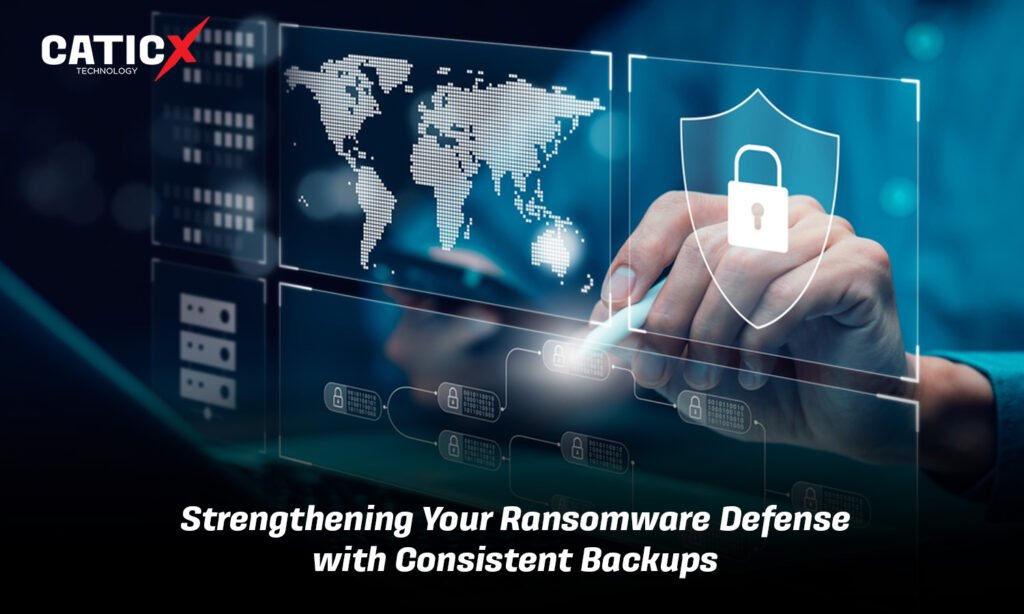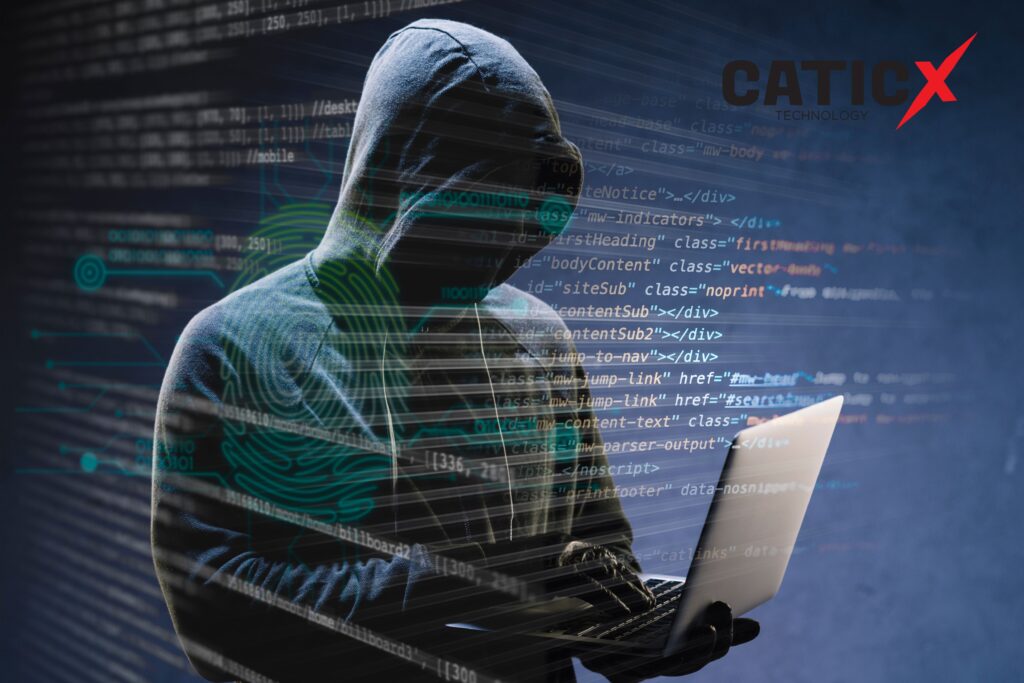
Ransomware attacks have become increasingly prevalent, affecting businesses and individuals alike. These malicious software programs can encrypt your data, rendering it inaccessible until a ransom is paid. The consequences of such attacks can be devastating, leading to financial loss, reputational damage, and operational disruptions. One of the most effective strategies to mitigate the impact of ransomware is through regular data backups. Here we explore the importance of regular backups in ransomware defense, how to implement a robust backup strategy, and best practices for ensuring your data remains secure.
Ransomware
Before delving into the significance of backups, it’s essential to understand what ransomware is and how it operates. Ransomware typically infects a computer or network through phishing emails, malicious downloads, or vulnerabilities in software. Once activated, it encrypts files on the infected system, rendering them inaccessible. The attackers then demand a ransom, often in cryptocurrency, for the decryption key.
The threat of ransomware is not just about losing access to your data; it also poses a risk to your business continuity. A successful attack can halt operations, disrupt services, and erode customer trust. This makes proactive measures, including regular backups, crucial for any organization.
Why Regular Backups Are Essential
- Data Recovery Without Paying the Ransom
The primary benefit of regular backups is that they allow you to recover your data without succumbing to the attackers’ demands. If your data is backed up properly, you can restore your systems to a previous state before the ransomware attack, effectively bypassing the need to pay the ransom. This not only saves money but also avoids encouraging the cycle of ransomware attacks.
- Minimizing Downtime
Downtime can be incredibly costly for businesses. Ransomware attacks can lead to extended periods of inactivity as IT teams work to recover data or clean infected systems. Regular backups facilitate faster recovery times, allowing businesses to resume normal operations quickly. This is particularly vital for organizations that rely on real-time data and continuous service.
- Protecting Against Data Loss
Data loss can occur for various reasons—hardware failures, natural disasters, or human error. Regular backups provide a safety net, ensuring that important files and information are not permanently lost. In the case of a ransomware attack, having backups means that you won’t lose critical business data that could take years to recover or may be irretrievable.
- Compliance and Legal Requirements
Many industries are subject to data protection regulations that require organizations to implement measures to safeguard sensitive information. Regular backups help ensure compliance with these regulations, which can protect businesses from legal repercussions and fines. Demonstrating that you have robust backup and recovery processes in place can also enhance your reputation with clients and partners.
- Peace of Mind
Knowing that your data is regularly backed up can provide peace of mind for business owners and employees. It reduces the anxiety associated with the threat of ransomware, allowing teams to focus on their work rather than worrying about potential data loss.
Implementing a Robust Backup Strategy
To effectively defend against ransomware, it’s essential to have a well-thought-out backup strategy. Here are key components to consider:
- Regular Backup Schedule
Establish a regular backup schedule based on the frequency of data changes in your organization. For critical data, daily backups may be necessary, while less critical data could be backed up weekly or monthly. Automating the backup process can ensure consistency and reduce the risk of human error.
- Multiple Backup Locations
Utilize a combination of on-site and off-site backups. While on-site backups allow for quick recovery, off-site backups protect against local disasters such as fires or floods. Cloud-based backup solutions can provide an additional layer of security and accessibility.
- Versioning
Implement versioning in your backup strategy. This means keeping multiple versions of your files so that if a file is encrypted by ransomware, you can restore a previous, uninfected version. Versioning can be a lifesaver when it comes to recovering from an attack.
- Testing Backups
Regularly test your backup restoration process to ensure that you can recover data effectively and quickly when needed. Conducting mock recovery drills can help identify any issues with your backup process before an actual disaster occurs.
- Encryption and Security
Protect your backups with encryption and secure access controls. This ensures that even if attackers gain access to your backup data, they cannot easily use it for malicious purposes. Additionally, regularly update your backup systems and software to protect against vulnerabilities.
Best Practices for Backup Management
- Educate Employees
Training employees on the importance of backups and how to recognize potential threats can enhance your organization’s overall cybersecurity posture. Employees should understand the role they play in maintaining data security.
- Keep Software Updated
Regularly update all software, including backup solutions, to protect against vulnerabilities that ransomware might exploit. Outdated software is a common entry point for attackers.
- Implement Strong Access Controls
Limit access to backup systems and data based on user roles. Implementing strong authentication measures can help protect your backup data from unauthorized access.
- Monitor and Audit Backups
Regularly monitor your backup processes and conduct audits to ensure compliance with your backup strategy. Address any discrepancies or failures promptly.
In the face of increasing ransomware threats, regular backups are an indispensable component of a comprehensive cybersecurity strategy. They not only provide a means of recovery without paying a ransom but also minimize downtime, protect against data loss, and ensure compliance with regulations. By implementing a robust backup strategy and adhering to best practices, organizations can significantly reduce their vulnerability to ransomware attacks.
Secure Your Business Against Ransomware with Caticx Technology
Investing in regular backups is not just a precaution; it’s a vital step toward safeguarding your business’s future. Don’t wait for an attack to realize the importance of data backups—act now to secure your information and protect your organization from potential threats.
In the face of increasing ransomware threats, regular backups are an indispensable component of a comprehensive cybersecurity strategy. At Caticx Technologies, we prioritize these backups as part of our commitment to protecting your business. Our solutions not only facilitate recovery without paying a ransom but also minimize downtime, safeguard against data loss, and ensure compliance with regulations. By partnering with Caticx Technologies and implementing a robust backup strategy, organizations can significantly enhance their resilience against ransomware attacks.


